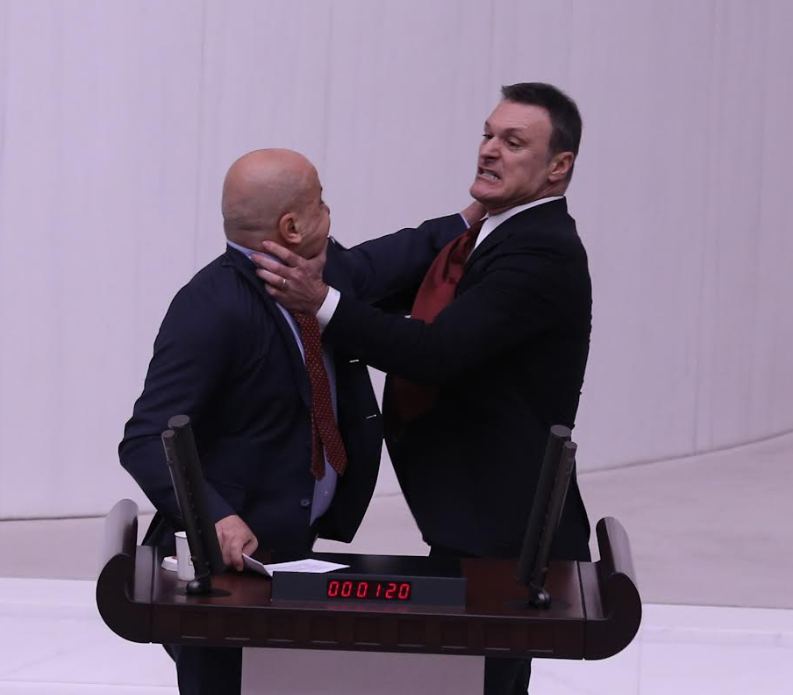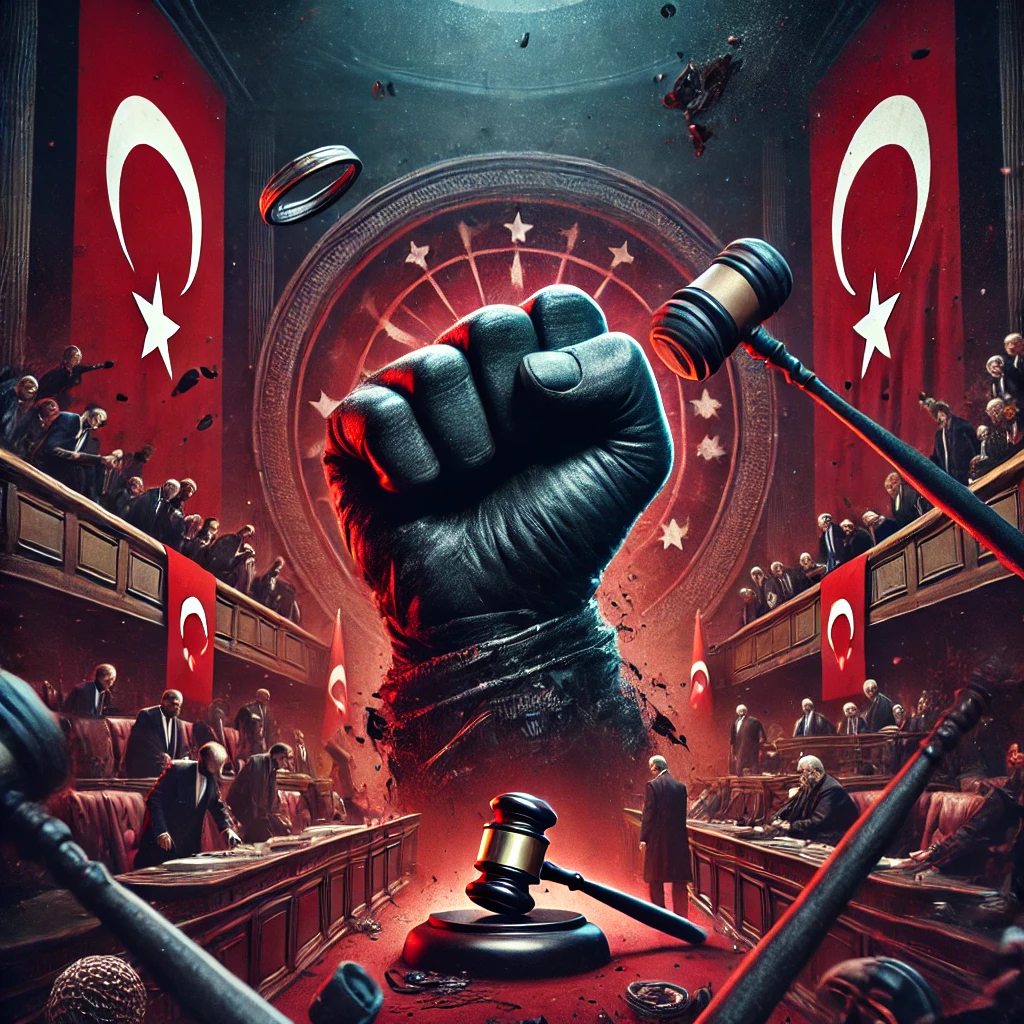The extraordinary session held in the Turkish Grand National Assembly (TBMM) on 9th August starkly revealed the authoritarian nature and violent tendencies of the political Islamists in power. Under the leadership of Recep Tayyip Erdoğan, Turkey has been governed by political Islamists for 55 years, transforming the country into what can be described as a region under occupation. In Erdoğan’s Turkey, derogatory terms like “White Turks/Secular” and “Whores” “House Negros” are frequently used to insult opponents, contributing to an increasingly polarised society.

The extraordinary session was convened following the Constitutional Court’s ruling on the revocation of Can Atalay’s parliamentary status. The session quickly descended into chaos when Ahmet Şık, a member of the Workers’ Party of Turkey (TİP), took the podium to denounce the ruling party, accusing them of having no shame or honour. His words sparked fury among the AKP members, leading Alpay Özalan, an MP known for his past violent conduct, to physically assault Şık.
This incident is not isolated; it follows a disturbing pattern of violence in the Turkish Parliament, where AKP members, under Erdoğan’s leadership, frequently resort to physical aggression to silence dissent. The attack on Ahmet Şık is particularly significant as it reflects the broader erosion of democratic norms in Turkey, where authoritarianism has steadily taken hold under the guise of political Islam.
In recent years, the Turkish Parliament has increasingly become a battleground, not for ideas and debates, but for physical confrontations. The violent outburst during the session was a stark reminder of the intolerance and aggression that have become hallmarks of Erdoğan’s government. Alpay Özalan, a former footballer turned politician, has been at the centre of several such incidents, using his physical prowess to intimidate and silence political opponents.
In 2018, a similar incident occurred when a debate over a legislative proposal turned into a brawl between AKP and HDP members, with Özalan playing a central role. This was followed by another altercation in 2020 during discussions on human rights violations, where Özalan was once again involved, defending Erdoğan with fervent aggression. The escalation of violence in 2021 further cemented his reputation as a political enforcer for the AKP, particularly during an exchange involving Interior Minister Süleyman Soylu and CHP member Özgür Özel.
The increasing violence in Parliament is emblematic of the broader societal breakdown in Turkey, where Erdoğan’s rule has fostered a climate of fear and division. The events of 9th August were a clear indication that the principles of democracy and civil discourse are being systematically eroded, replaced by an environment where force is used to assert political dominance.
As violence becomes more entrenched in the political landscape, the question arises: Is Turkey, under Erdoğan’s leadership, becoming a nation under occupation, not by foreign forces, but by its own rulers? The actions of the AKP and its supporters suggest that the country is indeed facing a new kind of internal occupation, one that seeks to suppress opposition and enforce conformity through fear and violence.
Özgür Özel, leader of the CHP, expressed his deep concern following the violent events, calling for an immediate intervention by Parliamentary Speaker Numan Kurtulmuş. Özel described the situation as a disgrace, urging Kurtulmuş to take a stand against the normalisation of violence in the Turkish Parliament. The CHP is prepared to take whatever steps necessary to address the rising tide of aggression that threatens the very fabric of Turkey’s democratic institutions.
In conclusion, the events in the Turkish Parliament are not merely isolated incidents of violence but a reflection of a deeper, more troubling trend in Turkish politics. Under Erdoğan, the nation seems to be slowly drifting into a state of internal occupation, where democratic values are under constant assault by those in power.






